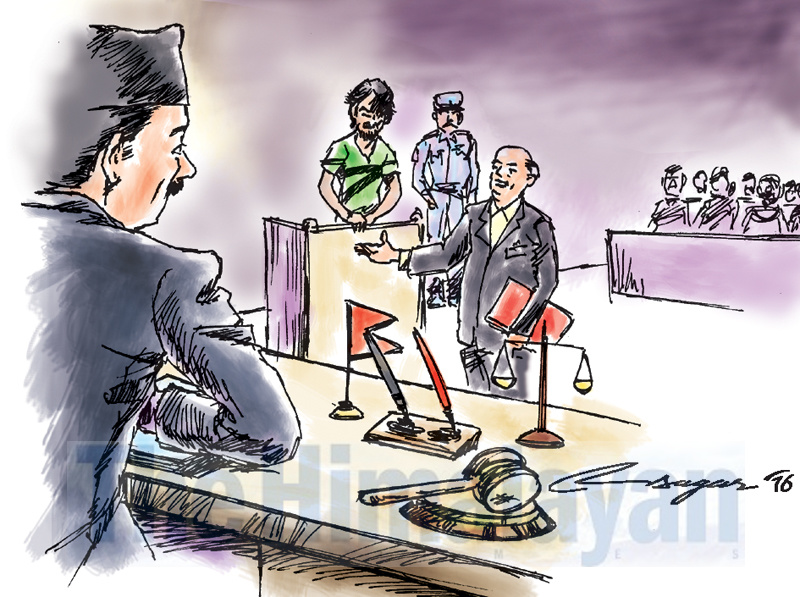Polygraph test inadmissible as evidence
Kathmandu, May 18
The new Evidence Act (Amendment) Bill being considered by the National Assembly intends to make the Evidence Act compatible with provisions of the newly enacted civil penal code, yet it doesn’t incorporate provisions related to polygraph test and the admissibility of declaration of the dying as evidence.
The bill incorporates provisions related to admissibility of audio-visuals, including video conference as evidence as provisioned by the new civil and penal code.
Senior Advocate Yadu Nath Khanal said detectives conducted polygraph tests on suspects in some cases in the past, but since the Evidence Act did not incorporate provisions related to polygraph test, they could not be taken as evidence even though the polygraph test is recognised as a valid method of collecting evidence in other countries.
The bill says a person’s statement just before death, could be admissible in the court, but the amendment bill does not add any details on admissibility of dying declaration as evidence.
Khanal said the bill should have clarified how the dying declaration could be deemed as evidence and whether or not it should be undersigned by the dying person or whether it could be an oral statement given to anybody.
“This bill fails to add details whether a dying declaration made to family members or persons other than competent authority should be taken as evidence,” Khanal said, adding that there was a subjudice case where the victim told the competent authority that her husband did not try to kill her, but the woman’s sister told the authorities that she had told her that her husband poured kerosene on her and set her ablaze. According to Khanal, the district court did not validate the statement of the victim’s sister as the victim’s dying declaration, but the high court overturned the district court’s decision.
The case is now subjudice at the Supreme Court.
Khanal said admissibility of dying declaration was based on the principle that ‘a dying person never lies’ but in today’s age when people do not care about religious virtues and sin, caution should be exercised while accepting dying declaration as evidence.
The bill stipulates that in some cases, parties may bring their own witnesses to the court on the very day the case is filed in the court.
This provision is aimed at avoiding risk of intimidation, coercion and enticement government witnesses could face from the accused or powerful people.
The bill stipulates that the court may examine other experts on a subject matter if the expert related to a particular case dies or fails to appear before the court to record his/her statement for any reason. This provision could increase success rate in government cases as the government had lost many cases due to experts’ failure to appear before the court to record their statements. Experts’ opinions are crucial to establish guilt in criminal cases.
The bill stipulates that any deal done through digital or electronic means may be admissible as evidence. Digital signatures will be deemed valid. A co-accused’s implicating statement can also be taken as evidence if the crime is confessed and others are implicated.






